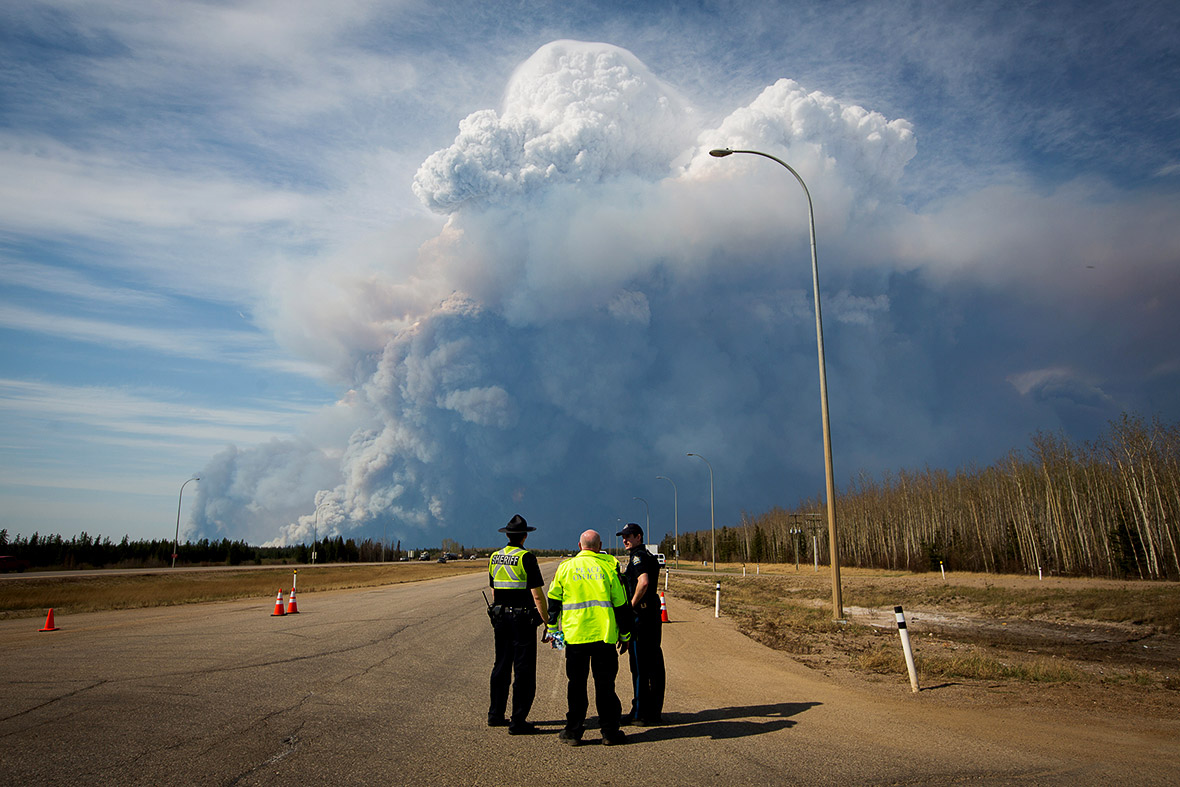As a wildfire rages across Alberta’s oil-sands region, pipelines, tanks full of chemicals, buildings and equipment are more at risk than the thick, tar-like deposits that are mined from the ground.
The fire neared the gate of Cnooc Ltd.’s Long Lake oil sands plant in northern Alberta Friday. While officials were hopeful that winds would push the flames away to the northeast, many oil companies also have fire crews preparing to defend their complexes, Chad Morrison, the province’s wildfire compliance and investigations manager, said during a conference call. "They’re highly trained and have great emergency response plans in place for that."
The mines are cleared of vegetation so it’s unlikely the flames could reach any deposits. And burning oil-sands creates a hard, coal-like residue on the rock called coke, which prevents fire from reaching deeper into a seam, said Rick Chalaturnyk, an engineering professor at the University of Alberta.
“It seals itself off," he said in a telephone interview. “You can find records of natural wildfires in these deposits for centuries and none of them have produced a situation where you have an extended fire."

Royal Bank of Canada estimated that as much as 1 million barrels a day of production was shut because of the blaze, or about 40 percent of oil sands output, as companies including Suncor Energy Inc., Cnooc’s Nexen, Royal Dutch Shell Plc, and ConocoPhillips reduce production and open work camps to residents escaping blazes in Alberta’s biggest-ever evacuation. Inter Pipeline Ltd. shut part of its system in the province. The disruptions pushed up the price of oil sands crude.
"Eighty percent of the oil sands are located deep underground and can only be extracted through an in-situ drilling process," Chelsie Klassen, a spokeswoman for the Canadian Association of Petroleum Producers, said in an e-mail on Thursday. "The remaining 20 percent is mineable from the surface and predominantly located north of Fort McMurray. Hydrocarbons can burn under the right conditions, however oil sands would burn at a much slower pace considering its composition with sand."













